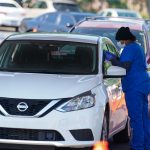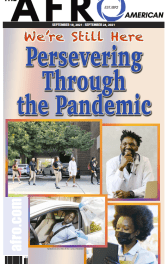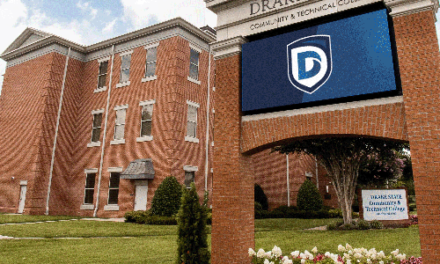By Ryan Michaels
The Birmingham Times
Two years after the World Health Organization (WHO) declared the COVID-19 outbreak to be a global pandemic, medical officials continue to learn how to prepare for and address public health concerns, said UAB Health Epidemiologist Rachael Lee and Jefferson County Health Officer Mark Wilson, during a virtual press briefing Friday.
Since WHO declared a global pandemic on March 11, 2020, researchers have been unified in working to understand more about the virus, its treatment and mitigation strategies, Lee said. Trying to take in the flow of information is like “trying to drink from a firehose,” she added.
“I know it seems scary, in terms of the public, that things are constantly changing and being updated, but from a scientific standpoint, how this community has come together to be able to care for everybody is amazing,” Lee said.
Wilson said a lot of assumptions health officials had regarding preparedness at the beginning of the pandemic “just didn’t turn out to be true with COVID-19.”
“One of them was simply not having material supplies of certain things that we needed . . . we did not have hand sanitizer, we didn’t have masks, even for health care workers,” he said. “Masks that were in our Strategic National Stockpile turned out to be out of date and deteriorating.”
Just after the WHO declared the pandemic, Lee said she and other UAB health care leaders faced one of many practical problems.
“I remember having a big meeting where we were discussing, should we implement universal masking for our health care workers, and the answer unanimously was ‘yes,’” Lee recalled, “but then the second question becomes, how are we going to get those masks…”
Beyond a lack of supplies, Wilson also said health officials did not expect how contagious the virus would be. While multiple health organizations in the area had run their own pandemic simulations, COVID-19’s rapid spread was a shock, he said.
“The fact that it was extremely contagious made it more difficult to do certain things that we assumed we could do, in terms of just the safety of any kind of testing operations or vaccination efforts,” Wilson said.
That contagiousness also affected health care employees more severely than health officials predicted, said the health officer.
“The fact that our first responders and our health care workers are being taken out of commission by the virus . . . that really hamstrung us a great deal,” Wilson said.
Another area of concern was the misinformation about vaccines, he continued. The anti-vaccine movement, which predates COVID, has had “rocket fuel” poured on it, Wilson said.
“I’m very concerned that this anti-vaccine sentiment, which has no basis in science whatsoever, a lot of the arguments that are being made are misusing data…but I am concerned that we may have more threats, in terms of other vaccine preventable diseases.”
Lee said she had concerns about how people will respond to future pandemics and hopes citizens will trust health care providers.
“I’m born and raised in Alabama,” she said. “I care a lot about this community, and I think, if anything, I would hope that people could see that we as health care workers really do care about you and about your loved ones.”











